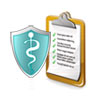FTC Settles Charges Against Two Companies
The U.S. Federal Trade Commission on Tuesday settled charges against two companies, Ceridian Corporation and Lookout Services, Inc., provided they implement an ample information security program and agree to have audits performed on their company every other year for 20 years.










